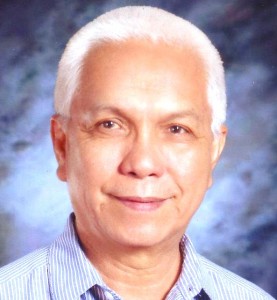Duterte aide recalls torture under Marcos’ martial law
DAVAO CITY – It was not only President Aquino who suffered during the dark years of Martial Law.
Even the close aide of President-elect Rodrigo Duterte, Leoncio Evasco, a former priest who became an activist, went through two types of water cure as a form of torture, and had to endure beatings that made him forget about God.
Mr. Aquino, whose family blames dictator Ferdinand Marcos for the detention and assassination of his father, Senator Benigno Aquino Jr., had warned against the return of the dictatorship in a strongly worded speech to mark the country’s Independence Day on Sunday.
Although the outgoing President did not mention Duterte in his speech, he had described Duterte at the height of the heated Presidential campaign as a potential dictator that his opponents should unite against. Duterte won anyway by a landslide of over 16 million votes and a margin of over 6 million votes.
Evasco, named Secretary to the Cabinet after he turned down Duterte’s offer to head the Department of Interior and Local Government (DILG), had refused to comment on the outgoing administration’s attempt to equate the Duterte administration with that of Marcos.
Article continues after this advertisementBut in an earlier interview, Evasco had described the two types of water cure that he underwent while he was in prison 33 years ago.
Article continues after this advertisement“It will not totally leave you,” said Evasco, a former priest before he turned communist rebel, when asked if he still prayed to God while he endured extreme pain.
“But you’re no longer aware that there is God,” he said.
He said the first type of water cure was the crude type, where they pushed a wet towel to cover your nose, and pour into your mouth water from the toilet. When your belly was full of water, they stepped on to it until water came out of the prisoner’s mouth and ears.
He said the other type of water cure was more sophisticated, and has been known as an assault being used by the Central Intelligence Agency (CIA). In this case, the prisoner would be tied to a bench, letting the head to hang upside down. Then, a cloth would be forced into the prisoner’s mouth, before water would be poured into the nose. When the prisoner’s body was full of water, the tortures would again start trampling upon the stomach of the prisoner.
“I was 39 at that time, I was thin but I was not a sickly type,” he said.
“It was too much, you are hanging and they do that, you are squirming from all the pain, I almost swallowed my false teeth in the midst of it,” said Evasco, who still remembered the incident vividly as if it happened yesterday.
He said that he bore the brunt of torture because they perceived him to be a ranking leader and all the while they were interrogating him about the money that he had. He used to lead the campaign against the coco levy fund, waged by the underground movement at that time.
He said God was still hovering somewhere over his head while he was suffering extreme pain but he was no longer conscious of it.
“I just willed myself to protect other people in danger,” he said. “God was still in your subconscious, of course, he is still somewhere there, but in practice, you could no longer think of God because you get confronted by a lot of things.”
Evasco, who was captured and heavily tortured in 1983, was among the political prisoners freed when Corazon Aquino was swept to the presidency after the Edsa People Power Revolution.
Evasco, who grew up in Bohol, and was ordained a priest in 1970, was forced to go underground after the raid of his convent in 1974. He first met Duterte, when Duterte was still a Davao City prosecutor, during his case’s trial.
A year after he was freed, Evasco had worked as Duterte’s political strategist when he first ran for mayor in Davao City.
Evasco also figured among the top strategists that propelled Duterte to the presidency. SFM
